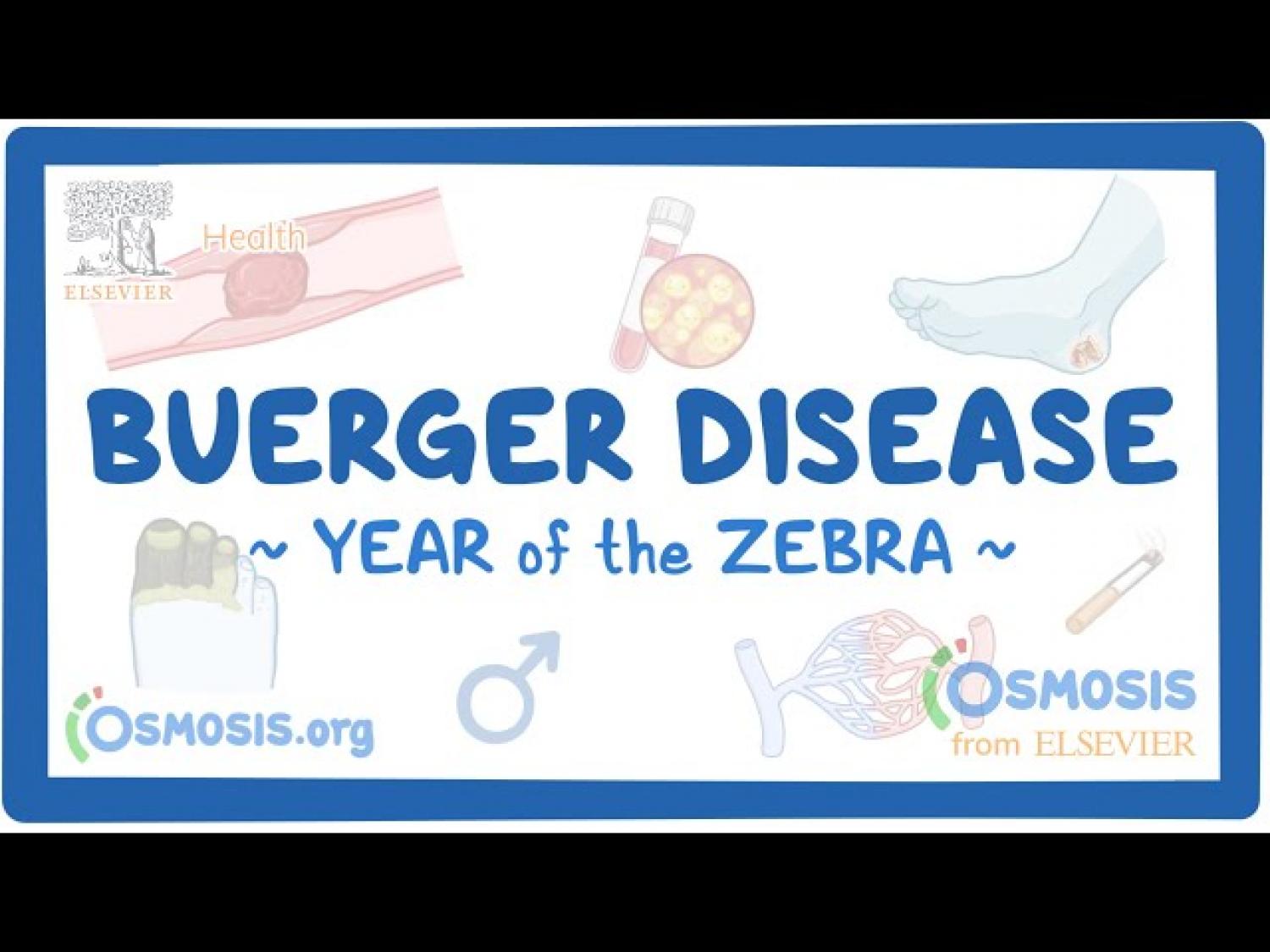
Rare Disease Education: Buerger Disease
Editor: Kelsey LaFayette, DNP, RN, FNP-C
"When you hear hoofbeats, think of horses, not zebras,” is a common saying in medical education that means you should think of common conditions first, instead of rare ones, in making a diagnosis. “Rare” is a relative term though and about 7,000 rare, or "zebra," conditions affect more than 350 million individuals worldwide. Although these conditions collectively affect an enormous number of people, each of these conditions individually is rare enough that it can be difficult to secure the resources to study them and to develop treatments and cures. Likewise, awareness of rare conditions may be low and health care professionals may not be familiar with their signs and symptoms making it more difficult to reach a correct diagnosis and provide effective treatments.
To increase knowledge about rare conditions, Osmosis and the National Organization for Rare Diseases (NORD) have collaborated on an initiative to bring education and awareness to the public. We are excited to be a part of this initiative because we believe everyone deserves quality health care, no matter how rare their condition.
Zebra of the Week: Buerger Disease
We all know that smoking is detrimental to our health. From stained teeth to lung cancer, common negative effects of smoking are widely discussed, and rightfully so. To add to an already-long list, smoking is also the biggest risk factor for this week’s rare disease, Buerger Disease.
Our blood vessels are the highways of our bodies, transporting oxygen and nutrients where needed. In Buerger Disease, smoking or chewing tobacco triggers damage to the blood vessel walls and causes them to narrow, spasm, and eventually form blood clots. These clots further block the blood flow, cutting off the downstream circulation. This results in symptoms such as pain, coldness, and eventually ulcers or gangrene in severe cases. Many patients get to the point of requiring the amputation of fingers or limbs. This disease usually affects young or middle-aged tobacco users, especially males. The mainstay of treatment is the cessation of smoking. Buerger Disease is also referred to as thromboangiitis obliterans.
Meet Marie
Watch Marie tell her painful story of smoking and Buerger Disease. Although she owns up to her decision to smoke, she would have made different choices had she known what was awaiting her. She wants to spread awareness on smoking prevention so that others do not go through what she has.
Organization Taking Strides
The Vasculitis Foundation, established in 1986, has a profound history of supporting those impacted by vasculitis. It was founded by a group of patients and their families who were motivated to find resources and answers for this life-altering group of diseases, including Buerger Syndrome.
The foundation plays an essential role in providing reliable information, advocating for patients, raising public awareness, and funding research into the causes, treatment, and potential cure for various types of vasculitis. Recognized internationally, its mission is to be a definitive resource for patients, caregivers, medical professionals, and researchers dealing with vasculitis The Vasculitis Foundation's relevance is not limited to those directly affected by vasculitis but extends to the broader healthcare community.
More Information on Buerger Syndrome:
